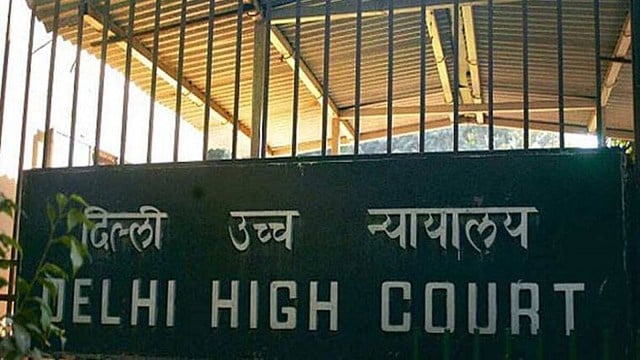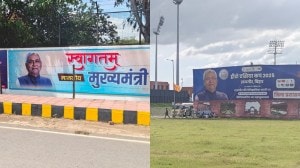Crucial for a person undergoing religious conversion to give informed consent: Delhi HC lays down guidelines
This is to ensure, the HC said, that consent to such conversion is an “informed” one, “given after fully understanding the consequences of such action”.
 The certificate of conversion and marriage should also be in “additional vernacular language understood by the prospective convert” to prove that he/she has understood it, the HC said. (File)
The certificate of conversion and marriage should also be in “additional vernacular language understood by the prospective convert” to prove that he/she has understood it, the HC said. (File)It is “crucial” that a person who undergoes religious conversion for marriage “willingly” embraces this decision while being “fully cognizant of the multi-faceted implications embedded in such a significant life choice”, the Delhi High Court said Friday.
The observations were made while the HC refused to quash an FIR against a man booked for allegedly raping a woman. The parties had sought quashing solely on the grounds of compromise as they had entered into a marital union, the court noted.
A single-judge bench of Justice Swarana Kanta Sharma, in its 58-page judgment, said it becomes “paramount to furnish and inform the individual with exhaustive information concerning religious doctrines, customs, and practices associated with the chosen faith” including explanations of the rituals and societal expectations inherent in religious conversion.
This is to ensure, the HC said, that consent to such conversion is an “informed” one, “given after fully understanding the consequences of such action”.
Observing that while “law books may not have answers to every situation lurking in pages of the petitions before adjudicating courts”, guidelines are born when courts deal with such real-life situations.
Justice Sharma said that except in cases of marriage under the Special Marriage Act, certain affidavits must be obtained at the time of inter-faith marriage after conversion by persons/authorities concerned which includes an affidavit regarding the “age, marital history and marital status and evidence thereof” of both parties; affidavit that conversion is being undergone “voluntarily” after understanding all implications and consequences.
The certificate of conversion and marriage should also be in “additional vernacular language understood by the prospective convert” to prove that he/she has understood it, the HC said.
“The same be in Hindi also where the language spoken and understood by the prospective convert is Hindi, in addition to any other language preferred to be used by such authority. Where the language spoken and understood by the prospective convert is other than Hindi, the said language can be used. These guidelines will not be applicable to the person converting back to his/her original religion, since the convert is already well-versed with his/her original religion,” the HC underscored.
This guideline came after Justice Sharma said that “choice of language holds immense significance”. Considering the gravity of this decision, it said it is incumbent upon the parties involved to convey this information in a manner that is “accessible and culturally sensitive”.
The HC, however, cautioned that it should not be seen as “laying down any law or prescribing any mode of conversion or putting restrictions on conversion”.
Justice Sharma explained that these guidelines are for ensuring a “well-informed decision on the part of the naive, uneducated, susceptible, adolescent couple” who may enter into such unions after conversions without fully comprehending the “profound implications” of the decision.
In the instant case, after registration of FIR, the parties got married and a nikahnama was signed between them.
The man was thereafter arrested and subsequently granted interim bail “on the ground of compromise and marriage between the parties, which was extended from time to time”. The HC noted that the woman had “lied at every stage and misguided police as well as the courts” as she did not disclose her marriage to the accused for almost a month after the registration of FIR.
The HC observed this after taking note of the woman’s allegation that the man had, after intoxicating her, established sexual relations without her consent and threatened her to not disclose the incident. The HC said that even the accused had failed to disclose these vital facts – of the marriage and compromise deed executed in the year 2012, during the anticipatory bail application reflecting the “lack of transparency on his part”. The HC said that both parties had not approached the court with clean hands with each contributing to the confusion and complicating the legal proceedings.
“The parties herein base their plea for quashing solely on the ground of compromise that they have entered into a marital union… Thus, this court is of the opinion that whether the marriage solemnised between the prosecutrix and the accused vide Nikahnama dated 28.10.2022, as per Muslim rites and customs, is a valid marriage or not, is a question in itself that remains unanswered at this stage,” the court said.
It further observed that it looks at such a “marriage with suspicion” since it was immediately solemnised within 10 days of registration of FIR, after getting the prosecutrix’s religion converted to Islam.
Hence, it cannot be ascertained at this stage, the court said, if the conversion was with a bona fide intent to only marry the woman or to “clandestinely project” to her that now she was married to the accused so they could approach the courts for seeking bail and quashing the FIR.







